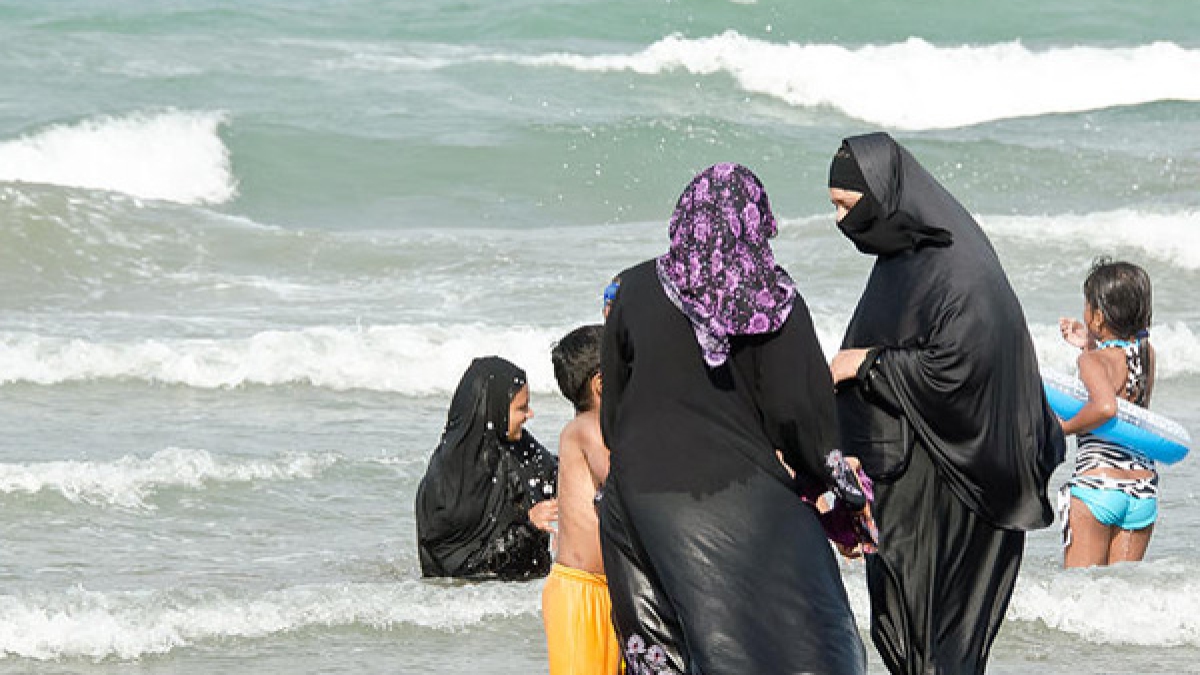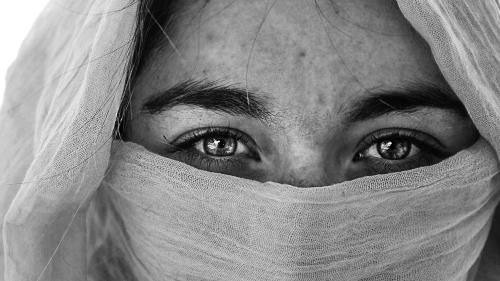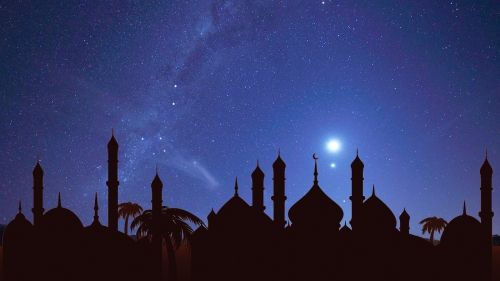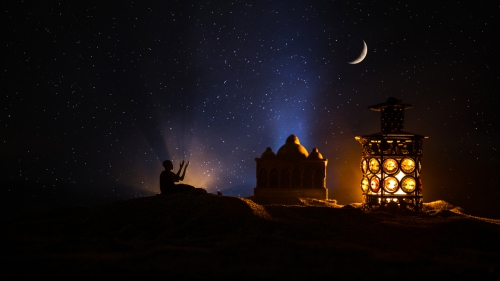a:19:{s:8:"theTitle";s:51:"Do We Treat Muslim Women with Fairness and Respect?";s:12:"thePermalink";s:71:"https://www.islamicity.org/7918/the-verse-of-abuse-or-the-abused-verse/";s:13:"theAuthorName";s:13:"Sadullah Khan";s:12:"theThumbnail";s:70:"http://media.islamicity.org/wp-content/uploads/2017/03/eyes_hijab.jpeg";s:6:"isWhat";s:7:"article";s:7:"theIcon";s:0:"";s:8:"theEmbed";s:0:"";s:11:"theCategory";s:44:"cannot-retrieve-category-see-cell-part-1.php";s:6:"theTag";s:19:"women|/topics/women";s:7:"theDate";s:11:"Nov 12 2024";s:11:"theDate_ORG";s:37:"July 9, 2004 {wpcf-soft-date engaged}";s:9:"theAuthor";s:31:"Sadullah Khan|/by/sadullah-khan";s:5:"theID";i:7918;s:14:"theReadingTime";s:7:"36 min.";s:10:"theExcerpt";s:142:"The question that arises is that if Islam liberated women centuries ago, then why is it that maltreatment of wives is not a rare occurrence ..";s:12:"theTitle_ORG";s:51:"Do We Treat Muslim Women with Fairness and Respect?";s:25:"processRelatedFacetsTitle";s:0:"";s:15:"whereItCameFrom";s:57:"content.php & related posts > values=love OR spirituality";s:8:"theFacet";s:0:"";}
a:19:{s:8:"theTitle";s:31:"Faith Over Fear: Trusting Allah";s:12:"thePermalink";s:65:"https://www.islamicity.org/103315/faith-over-fear-trusting-allah/";s:13:"theAuthorName";s:13:"I Lov U Allah";s:12:"theThumbnail";s:56:"https://img.youtube.com/vi/Gb03da3iJa0/maxresdefault.jpg";s:6:"isWhat";s:5:"video";s:7:"theIcon";s:33:"";s:8:"theEmbed";s:43:"https://www.youtube.com/watch?v=Gb03da3iJa0";s:11:"theCategory";s:44:"cannot-retrieve-category-see-cell-part-1.php";s:6:"theTag";s:43:"us elections 2024|/topics/us-elections-2024";s:7:"theDate";s:10:"Nov 7 2024";s:11:"theDate_ORG";s:41:"November 6, 2024 {wpcf-soft-date engaged}";s:9:"theAuthor";s:35:"I Lov U Allah|/source/i-lov-u-allah";s:5:"theID";i:103315;s:14:"theReadingTime";s:6:"4 min.";s:10:"theExcerpt";s:186:"This message encourages Muslims to stay steadfast, united, and strong in faith, with a reminder that Allah’s guidance and mercy will carry us through any challenge.
Trusting i......";s:12:"theTitle_ORG";s:31:"Faith Over Fear: Trusting Allah";s:25:"processRelatedFacetsTitle";s:0:"";s:15:"whereItCameFrom";s:57:"content.php & related posts > values=love OR spirituality";s:8:"theFacet";s:0:"";}
a:19:{s:8:"theTitle";s:53:"Is Kindness the Answer to a World Filled with Hatred?";s:12:"thePermalink";s:72:"https://www.islamicity.org/3332/kindness-the-insignia-of-a-loving-heart/";s:13:"theAuthorName";s:13:"Sadullah Khan";s:12:"theThumbnail";s:68:"https://media.islamicity.org/wp-content/uploads/2024/11/kindness.jpg";s:6:"isWhat";s:7:"article";s:7:"theIcon";s:0:"";s:8:"theEmbed";s:0:"";s:11:"theCategory";s:44:"cannot-retrieve-category-see-cell-part-1.php";s:6:"theTag";s:19:"islam|/topics/islam";s:7:"theDate";s:10:"Nov 7 2024";s:11:"theDate_ORG";s:40:"August 13, 2008 {wpcf-soft-date engaged}";s:9:"theAuthor";s:31:"Sadullah Khan|/by/sadullah-khan";s:5:"theID";i:3332;s:14:"theReadingTime";s:6:"5 min.";s:10:"theExcerpt";s:181:"O Lord, make me an instrument of Your peace, Where there is hatred, let me sow love, Where there is injury, pardon, Where there is doubt, faith, Where there is despair, hope ";s:12:"theTitle_ORG";s:53:"Is Kindness the Answer to a World Filled with Hatred?";s:25:"processRelatedFacetsTitle";s:0:"";s:15:"whereItCameFrom";s:57:"content.php & related posts > values=love OR spirituality";s:8:"theFacet";s:0:"";}
a:19:{s:8:"theTitle";s:56:"Faith and Resilience: Allah's Promise in Difficult Times";s:12:"thePermalink";s:89:"https://www.islamicity.org/103138/faith-and-resilience-allahs-promise-in-difficult-times/";s:13:"theAuthorName";s:13:"Omar Suleiman";s:12:"theThumbnail";s:56:"https://img.youtube.com/vi/K2Hm6C8vefA/maxresdefault.jpg";s:6:"isWhat";s:5:"video";s:7:"theIcon";s:33:"";s:8:"theEmbed";s:43:"https://www.youtube.com/watch?v=K2Hm6C8vefA";s:11:"theCategory";s:44:"cannot-retrieve-category-see-cell-part-1.php";s:6:"theTag";s:37:"masjid al aqsa|/topics/masjid-al-aqsa";s:7:"theDate";s:11:"Oct 25 2024";s:11:"theDate_ORG";s:41:"October 24, 2024 {wpcf-soft-date engaged}";s:9:"theAuthor";s:31:"Omar Suleiman|/by/omar-suleiman";s:5:"theID";i:103138;s:14:"theReadingTime";s:7:"39 min.";s:10:"theExcerpt";s:103:"Dr. Sheikh Omar Suleiman addresses the profound question of where Allah is during times of atrocitie...";s:12:"theTitle_ORG";s:56:"Faith and Resilience: Allah's Promise in Difficult Times";s:25:"processRelatedFacetsTitle";s:0:"";s:15:"whereItCameFrom";s:57:"content.php & related posts > values=love OR spirituality";s:8:"theFacet";s:0:"";}
a:19:{s:8:"theTitle";s:57:"Can We Find Work-Life Balance Without Compromising Faith?";s:12:"thePermalink";s:91:"https://www.islamicity.org/102736/can-we-find-work-life-balance-without-compromising-faith/";s:13:"theAuthorName";s:32:"Siti Nurnadilla Mohamad Jamil+..";s:12:"theThumbnail";s:94:"https://media.islamicity.org/wp-content/uploads/2024/09/work-life-balance-and-islam-scaled.jpg";s:6:"isWhat";s:7:"article";s:7:"theIcon";s:0:"";s:8:"theEmbed";s:0:"";s:11:"theCategory";s:44:"cannot-retrieve-category-see-cell-part-1.php";s:6:"theTag";s:53:"social system of islam|/topics/social-system-of-islam";s:7:"theDate";s:11:"Sep 19 2024";s:11:"theDate_ORG";s:43:"September 19, 2024 {wpcf-soft-date engaged}";s:9:"theAuthor";s:66:"Siti Nurnadilla Mohamad Jamil+..|/by/siti-nurnadilla-mohamad-jamil";s:5:"theID";i:102736;s:14:"theReadingTime";s:7:"13 min.";s:10:"theExcerpt";s:102:"Work-life balance is often defined as an employee’s division between time at work and personal time.";s:12:"theTitle_ORG";s:57:"Can We Find Work-Life Balance Without Compromising Faith?";s:25:"processRelatedFacetsTitle";s:0:"";s:15:"whereItCameFrom";s:57:"content.php & related posts > values=love OR spirituality";s:8:"theFacet";s:0:"";}
a:19:{s:8:"theTitle";s:49:"Prophet Muhammad (PBUH): A Mercy For All Creation";s:12:"thePermalink";s:83:"https://www.islamicity.org/8644/the-prophet-muhammad-pbuh-a-mercy-for-all-creation/";s:13:"theAuthorName";s:12:" IslamiCity ";s:12:"theThumbnail";s:88:"http://media.islamicity.org/wp-content/uploads/2019/11/iStock-1053866268-2124x1414px.jpg";s:6:"isWhat";s:7:"article";s:7:"theIcon";s:0:"";s:8:"theEmbed";s:0:"";s:11:"theCategory";s:44:"cannot-retrieve-category-see-cell-part-1.php";s:6:"theTag";s:43:"hadith and sunnah|/topics/hadith-and-sunnah";s:7:"theDate";s:11:"Sep 13 2024";s:11:"theDate_ORG";s:43:"September 28, 2012 {wpcf-soft-date engaged}";s:9:"theAuthor";s:31:" IslamiCity |/source/islamicity";s:5:"theID";i:8644;s:14:"theReadingTime";s:6:"9 min.";s:10:"theExcerpt";s:200:"Allah's Messenger was the kindest of men in the same way as he excelled all others in courage and valour. Being extremely kind-hearted, his eyes brimmed with tears at the slightest sign of inhumanity.";s:12:"theTitle_ORG";s:49:"Prophet Muhammad (PBUH): A Mercy For All Creation";s:25:"processRelatedFacetsTitle";s:0:"";s:15:"whereItCameFrom";s:57:"content.php & related posts > values=love OR spirituality";s:8:"theFacet";s:0:"";}
a:19:{s:8:"theTitle";s:29:"Laylatul Qadr: Values of Life";s:12:"thePermalink";s:62:"https://www.islamicity.org/41986/laylatul-qadr-values-of-life/";s:13:"theAuthorName";s:12:"Mansoor Alam";s:12:"theThumbnail";s:74:"https://media.islamicity.org/wp-content/uploads/2020/05/Night_of_Power.jpg";s:6:"isWhat";s:7:"article";s:7:"theIcon";s:0:"";s:8:"theEmbed";s:0:"";s:11:"theCategory";s:44:"cannot-retrieve-category-see-cell-part-1.php";s:6:"theTag";s:57:"last ten days of ramadan|/topics/last-ten-days-of-ramadan";s:7:"theDate";s:11:"Mar 27 2025";s:11:"theDate_ORG";s:37:"May 19, 2020 {wpcf-soft-date engaged}";s:9:"theAuthor";s:29:"Mansoor Alam|/by/mansoor-alam";s:5:"theID";i:41986;s:14:"theReadingTime";s:7:"13 min.";s:10:"theExcerpt";s:186:"This is the month of Ramadan in which the Quran was revealed:
شَهْرُ رَمَضَانَ الَّذِي أُنزِلَ فِيهِ الْقُرْآنُ هُدًى لِّلن......";s:12:"theTitle_ORG";s:29:"Laylatul Qadr: Values of Life";s:25:"processRelatedFacetsTitle";s:0:"";s:15:"whereItCameFrom";s:57:"content.php & related posts > values=love OR spirituality";s:8:"theFacet";s:0:"";}
a:19:{s:8:"theTitle";s:45:"The Eye: A Path to Wisdom or an Enemy Within?";s:12:"thePermalink";s:78:"https://www.islamicity.org/104226/the-eye-a-path-to-wisdom-or-an-enemy-within/";s:13:"theAuthorName";s:10:"Majd Arbil";s:12:"theThumbnail";s:69:"https://media.islamicity.org/wp-content/uploads/2025/03/Eye-Sight.png";s:6:"isWhat";s:7:"article";s:7:"theIcon";s:0:"";s:8:"theEmbed";s:0:"";s:11:"theCategory";s:44:"cannot-retrieve-category-see-cell-part-1.php";s:6:"theTag";s:17:"eyes|/topics/eyes";s:7:"theDate";s:11:"Mar 10 2025";s:11:"theDate_ORG";s:38:"March 9, 2025 {wpcf-soft-date engaged}";s:9:"theAuthor";s:25:"Majd Arbil|/by/majd-arbil";s:5:"theID";i:104226;s:14:"theReadingTime";s:6:"4 min.";s:10:"theExcerpt";s:186:"Our eyes are a gateway to the world, but do they always show us the truth? Or can they become our greatest enemy? The way we see things shapes our thoughts, actions, and ultimately......";s:12:"theTitle_ORG";s:45:"The Eye: A Path to Wisdom or an Enemy Within?";s:25:"processRelatedFacetsTitle";s:0:"";s:15:"whereItCameFrom";s:57:"content.php & related posts > values=love OR spirituality";s:8:"theFacet";s:0:"";}
a:19:{s:8:"theTitle";s:34:"Fasting in Shaban to honor Ramadan";s:12:"thePermalink";s:67:"https://www.islamicity.org/6013/fasting-in-shaban-to-honor-ramadan/";s:13:"theAuthorName";s:12:" IslamiCity ";s:12:"theThumbnail";s:79:"https://media.islamicity.org/wp-content/uploads/2025/01/shaban-moon-crecent.jpg";s:6:"isWhat";s:7:"article";s:7:"theIcon";s:0:"";s:8:"theEmbed";s:0:"";s:11:"theCategory";s:44:"cannot-retrieve-category-see-cell-part-1.php";s:6:"theTag";s:21:"shaban|/topics/shaban";s:7:"theDate";s:11:"Sep 29 2004";s:11:"theDate_ORG";s:18:"September 29, 2004";s:9:"theAuthor";s:31:" IslamiCity |/source/islamicity";s:5:"theID";i:6013;s:14:"theReadingTime";s:6:"6 min.";s:10:"theExcerpt";s:122:"The night occurring between 14th and 15th day of Shaban .. has special blessings that are directed towards the faithful ..";s:12:"theTitle_ORG";s:34:"Fasting in Shaban to honor Ramadan";s:25:"processRelatedFacetsTitle";s:0:"";s:15:"whereItCameFrom";s:57:"content.php & related posts > values=love OR spirituality";s:8:"theFacet";s:0:"";}
a:19:{s:8:"theTitle";s:46:"History and More about Shaban you May not Know";s:12:"thePermalink";s:68:"https://www.islamicity.org/10209/shaban-time-avoidance-headlessness/";s:13:"theAuthorName";s:13:"Sadullah Khan";s:12:"theThumbnail";s:87:"https://media.islamicity.org/wp-content/uploads/2022/03/cresent-moon-mosque-sky-isp.jpg";s:6:"isWhat";s:7:"article";s:7:"theIcon";s:0:"";s:8:"theEmbed";s:0:"";s:11:"theCategory";s:44:"cannot-retrieve-category-see-cell-part-1.php";s:6:"theTag";s:21:"shaban|/topics/shaban";s:7:"theDate";s:11:"May 24 2016";s:11:"theDate_ORG";s:12:"May 24, 2016";s:9:"theAuthor";s:31:"Sadullah Khan|/by/sadullah-khan";s:5:"theID";i:10209;s:14:"theReadingTime";s:6:"9 min.";s:10:"theExcerpt";s:94:"Sha’bān is the eighth month of the Islamic lunar calendar; the month that precedes Ramadan.";s:12:"theTitle_ORG";s:46:"History and More about Shaban you May not Know";s:25:"processRelatedFacetsTitle";s:0:"";s:15:"whereItCameFrom";s:57:"content.php & related posts > values=love OR spirituality";s:8:"theFacet";s:0:"";}
a:19:{s:8:"theTitle";s:17:"Satan's Algorithm";s:12:"thePermalink";s:51:"https://www.islamicity.org/103438/satans-algorithm/";s:13:"theAuthorName";s:18:"Mohammad Elshinawy";s:12:"theThumbnail";s:56:"https://img.youtube.com/vi/hyBlrKGCJOI/maxresdefault.jpg";s:6:"isWhat";s:5:"video";s:7:"theIcon";s:33:"";s:8:"theEmbed";s:43:"https://www.youtube.com/watch?v=hyBlrKGCJOI";s:11:"theCategory";s:44:"cannot-retrieve-category-see-cell-part-1.php";s:6:"theTag";s:39:"worship (ibadah)|/topics/worship-ibadah";s:7:"theDate";s:11:"Nov 19 2024";s:11:"theDate_ORG";s:42:"November 18, 2024 {wpcf-soft-date engaged}";s:9:"theAuthor";s:41:"Mohammad Elshinawy|/by/mohammad-elshinawy";s:5:"theID";i:103438;s:14:"theReadingTime";s:7:"21 min.";s:10:"theExcerpt";s:186:"Satan's Algorithm: A Reflection on the Friday Khutbah by Shaykh Mohammad Elshinawy delivered at the Jesus Son of Mary Mosque in Pennsylvania.
The Danger of Isolation: A Lesson f......";s:12:"theTitle_ORG";s:17:"Satan's Algorithm";s:25:"processRelatedFacetsTitle";s:0:"";s:15:"whereItCameFrom";s:57:"content.php & related posts > values=love OR spirituality";s:8:"theFacet";s:0:"";}
a:19:{s:8:"theTitle";s:51:"Do We Treat Muslim Women with Fairness and Respect?";s:12:"thePermalink";s:71:"https://www.islamicity.org/7918/the-verse-of-abuse-or-the-abused-verse/";s:13:"theAuthorName";s:13:"Sadullah Khan";s:12:"theThumbnail";s:70:"http://media.islamicity.org/wp-content/uploads/2017/03/eyes_hijab.jpeg";s:6:"isWhat";s:7:"article";s:7:"theIcon";s:0:"";s:8:"theEmbed";s:0:"";s:11:"theCategory";s:44:"cannot-retrieve-category-see-cell-part-1.php";s:6:"theTag";s:19:"women|/topics/women";s:7:"theDate";s:11:"Nov 12 2024";s:11:"theDate_ORG";s:37:"July 9, 2004 {wpcf-soft-date engaged}";s:9:"theAuthor";s:31:"Sadullah Khan|/by/sadullah-khan";s:5:"theID";i:7918;s:14:"theReadingTime";s:7:"36 min.";s:10:"theExcerpt";s:142:"The question that arises is that if Islam liberated women centuries ago, then why is it that maltreatment of wives is not a rare occurrence ..";s:12:"theTitle_ORG";s:51:"Do We Treat Muslim Women with Fairness and Respect?";s:25:"processRelatedFacetsTitle";s:0:"";s:15:"whereItCameFrom";s:57:"content.php & related posts > values=love OR spirituality";s:8:"theFacet";s:0:"";}
a:19:{s:8:"theTitle";s:31:"Faith Over Fear: Trusting Allah";s:12:"thePermalink";s:65:"https://www.islamicity.org/103315/faith-over-fear-trusting-allah/";s:13:"theAuthorName";s:13:"I Lov U Allah";s:12:"theThumbnail";s:56:"https://img.youtube.com/vi/Gb03da3iJa0/maxresdefault.jpg";s:6:"isWhat";s:5:"video";s:7:"theIcon";s:33:"";s:8:"theEmbed";s:43:"https://www.youtube.com/watch?v=Gb03da3iJa0";s:11:"theCategory";s:44:"cannot-retrieve-category-see-cell-part-1.php";s:6:"theTag";s:43:"us elections 2024|/topics/us-elections-2024";s:7:"theDate";s:10:"Nov 7 2024";s:11:"theDate_ORG";s:41:"November 6, 2024 {wpcf-soft-date engaged}";s:9:"theAuthor";s:35:"I Lov U Allah|/source/i-lov-u-allah";s:5:"theID";i:103315;s:14:"theReadingTime";s:6:"4 min.";s:10:"theExcerpt";s:186:"This message encourages Muslims to stay steadfast, united, and strong in faith, with a reminder that Allah’s guidance and mercy will carry us through any challenge.
Trusting i......";s:12:"theTitle_ORG";s:31:"Faith Over Fear: Trusting Allah";s:25:"processRelatedFacetsTitle";s:0:"";s:15:"whereItCameFrom";s:57:"content.php & related posts > values=love OR spirituality";s:8:"theFacet";s:0:"";}
a:19:{s:8:"theTitle";s:53:"Is Kindness the Answer to a World Filled with Hatred?";s:12:"thePermalink";s:72:"https://www.islamicity.org/3332/kindness-the-insignia-of-a-loving-heart/";s:13:"theAuthorName";s:13:"Sadullah Khan";s:12:"theThumbnail";s:68:"https://media.islamicity.org/wp-content/uploads/2024/11/kindness.jpg";s:6:"isWhat";s:7:"article";s:7:"theIcon";s:0:"";s:8:"theEmbed";s:0:"";s:11:"theCategory";s:44:"cannot-retrieve-category-see-cell-part-1.php";s:6:"theTag";s:19:"islam|/topics/islam";s:7:"theDate";s:10:"Nov 7 2024";s:11:"theDate_ORG";s:40:"August 13, 2008 {wpcf-soft-date engaged}";s:9:"theAuthor";s:31:"Sadullah Khan|/by/sadullah-khan";s:5:"theID";i:3332;s:14:"theReadingTime";s:6:"5 min.";s:10:"theExcerpt";s:181:"O Lord, make me an instrument of Your peace, Where there is hatred, let me sow love, Where there is injury, pardon, Where there is doubt, faith, Where there is despair, hope ";s:12:"theTitle_ORG";s:53:"Is Kindness the Answer to a World Filled with Hatred?";s:25:"processRelatedFacetsTitle";s:0:"";s:15:"whereItCameFrom";s:57:"content.php & related posts > values=love OR spirituality";s:8:"theFacet";s:0:"";}
a:19:{s:8:"theTitle";s:56:"Faith and Resilience: Allah's Promise in Difficult Times";s:12:"thePermalink";s:89:"https://www.islamicity.org/103138/faith-and-resilience-allahs-promise-in-difficult-times/";s:13:"theAuthorName";s:13:"Omar Suleiman";s:12:"theThumbnail";s:56:"https://img.youtube.com/vi/K2Hm6C8vefA/maxresdefault.jpg";s:6:"isWhat";s:5:"video";s:7:"theIcon";s:33:"";s:8:"theEmbed";s:43:"https://www.youtube.com/watch?v=K2Hm6C8vefA";s:11:"theCategory";s:44:"cannot-retrieve-category-see-cell-part-1.php";s:6:"theTag";s:37:"masjid al aqsa|/topics/masjid-al-aqsa";s:7:"theDate";s:11:"Oct 25 2024";s:11:"theDate_ORG";s:41:"October 24, 2024 {wpcf-soft-date engaged}";s:9:"theAuthor";s:31:"Omar Suleiman|/by/omar-suleiman";s:5:"theID";i:103138;s:14:"theReadingTime";s:7:"39 min.";s:10:"theExcerpt";s:103:"Dr. Sheikh Omar Suleiman addresses the profound question of where Allah is during times of atrocitie...";s:12:"theTitle_ORG";s:56:"Faith and Resilience: Allah's Promise in Difficult Times";s:25:"processRelatedFacetsTitle";s:0:"";s:15:"whereItCameFrom";s:57:"content.php & related posts > values=love OR spirituality";s:8:"theFacet";s:0:"";}
a:19:{s:8:"theTitle";s:57:"Can We Find Work-Life Balance Without Compromising Faith?";s:12:"thePermalink";s:91:"https://www.islamicity.org/102736/can-we-find-work-life-balance-without-compromising-faith/";s:13:"theAuthorName";s:32:"Siti Nurnadilla Mohamad Jamil+..";s:12:"theThumbnail";s:94:"https://media.islamicity.org/wp-content/uploads/2024/09/work-life-balance-and-islam-scaled.jpg";s:6:"isWhat";s:7:"article";s:7:"theIcon";s:0:"";s:8:"theEmbed";s:0:"";s:11:"theCategory";s:44:"cannot-retrieve-category-see-cell-part-1.php";s:6:"theTag";s:53:"social system of islam|/topics/social-system-of-islam";s:7:"theDate";s:11:"Sep 19 2024";s:11:"theDate_ORG";s:43:"September 19, 2024 {wpcf-soft-date engaged}";s:9:"theAuthor";s:66:"Siti Nurnadilla Mohamad Jamil+..|/by/siti-nurnadilla-mohamad-jamil";s:5:"theID";i:102736;s:14:"theReadingTime";s:7:"13 min.";s:10:"theExcerpt";s:102:"Work-life balance is often defined as an employee’s division between time at work and personal time.";s:12:"theTitle_ORG";s:57:"Can We Find Work-Life Balance Without Compromising Faith?";s:25:"processRelatedFacetsTitle";s:0:"";s:15:"whereItCameFrom";s:57:"content.php & related posts > values=love OR spirituality";s:8:"theFacet";s:0:"";}
a:19:{s:8:"theTitle";s:49:"Prophet Muhammad (PBUH): A Mercy For All Creation";s:12:"thePermalink";s:83:"https://www.islamicity.org/8644/the-prophet-muhammad-pbuh-a-mercy-for-all-creation/";s:13:"theAuthorName";s:12:" IslamiCity ";s:12:"theThumbnail";s:88:"http://media.islamicity.org/wp-content/uploads/2019/11/iStock-1053866268-2124x1414px.jpg";s:6:"isWhat";s:7:"article";s:7:"theIcon";s:0:"";s:8:"theEmbed";s:0:"";s:11:"theCategory";s:44:"cannot-retrieve-category-see-cell-part-1.php";s:6:"theTag";s:43:"hadith and sunnah|/topics/hadith-and-sunnah";s:7:"theDate";s:11:"Sep 13 2024";s:11:"theDate_ORG";s:43:"September 28, 2012 {wpcf-soft-date engaged}";s:9:"theAuthor";s:31:" IslamiCity |/source/islamicity";s:5:"theID";i:8644;s:14:"theReadingTime";s:6:"9 min.";s:10:"theExcerpt";s:200:"Allah's Messenger was the kindest of men in the same way as he excelled all others in courage and valour. Being extremely kind-hearted, his eyes brimmed with tears at the slightest sign of inhumanity.";s:12:"theTitle_ORG";s:49:"Prophet Muhammad (PBUH): A Mercy For All Creation";s:25:"processRelatedFacetsTitle";s:0:"";s:15:"whereItCameFrom";s:57:"content.php & related posts > values=love OR spirituality";s:8:"theFacet";s:0:"";}
a:19:{s:8:"theTitle";s:29:"Laylatul Qadr: Values of Life";s:12:"thePermalink";s:62:"https://www.islamicity.org/41986/laylatul-qadr-values-of-life/";s:13:"theAuthorName";s:12:"Mansoor Alam";s:12:"theThumbnail";s:74:"https://media.islamicity.org/wp-content/uploads/2020/05/Night_of_Power.jpg";s:6:"isWhat";s:7:"article";s:7:"theIcon";s:0:"";s:8:"theEmbed";s:0:"";s:11:"theCategory";s:44:"cannot-retrieve-category-see-cell-part-1.php";s:6:"theTag";s:57:"last ten days of ramadan|/topics/last-ten-days-of-ramadan";s:7:"theDate";s:11:"Mar 27 2025";s:11:"theDate_ORG";s:37:"May 19, 2020 {wpcf-soft-date engaged}";s:9:"theAuthor";s:29:"Mansoor Alam|/by/mansoor-alam";s:5:"theID";i:41986;s:14:"theReadingTime";s:7:"13 min.";s:10:"theExcerpt";s:186:"This is the month of Ramadan in which the Quran was revealed:
شَهْرُ رَمَضَانَ الَّذِي أُنزِلَ فِيهِ الْقُرْآنُ هُدًى لِّلن......";s:12:"theTitle_ORG";s:29:"Laylatul Qadr: Values of Life";s:25:"processRelatedFacetsTitle";s:0:"";s:15:"whereItCameFrom";s:57:"content.php & related posts > values=love OR spirituality";s:8:"theFacet";s:0:"";}
a:19:{s:8:"theTitle";s:45:"The Eye: A Path to Wisdom or an Enemy Within?";s:12:"thePermalink";s:78:"https://www.islamicity.org/104226/the-eye-a-path-to-wisdom-or-an-enemy-within/";s:13:"theAuthorName";s:10:"Majd Arbil";s:12:"theThumbnail";s:69:"https://media.islamicity.org/wp-content/uploads/2025/03/Eye-Sight.png";s:6:"isWhat";s:7:"article";s:7:"theIcon";s:0:"";s:8:"theEmbed";s:0:"";s:11:"theCategory";s:44:"cannot-retrieve-category-see-cell-part-1.php";s:6:"theTag";s:17:"eyes|/topics/eyes";s:7:"theDate";s:11:"Mar 10 2025";s:11:"theDate_ORG";s:38:"March 9, 2025 {wpcf-soft-date engaged}";s:9:"theAuthor";s:25:"Majd Arbil|/by/majd-arbil";s:5:"theID";i:104226;s:14:"theReadingTime";s:6:"4 min.";s:10:"theExcerpt";s:186:"Our eyes are a gateway to the world, but do they always show us the truth? Or can they become our greatest enemy? The way we see things shapes our thoughts, actions, and ultimately......";s:12:"theTitle_ORG";s:45:"The Eye: A Path to Wisdom or an Enemy Within?";s:25:"processRelatedFacetsTitle";s:0:"";s:15:"whereItCameFrom";s:57:"content.php & related posts > values=love OR spirituality";s:8:"theFacet";s:0:"";}
a:19:{s:8:"theTitle";s:34:"Fasting in Shaban to honor Ramadan";s:12:"thePermalink";s:67:"https://www.islamicity.org/6013/fasting-in-shaban-to-honor-ramadan/";s:13:"theAuthorName";s:12:" IslamiCity ";s:12:"theThumbnail";s:79:"https://media.islamicity.org/wp-content/uploads/2025/01/shaban-moon-crecent.jpg";s:6:"isWhat";s:7:"article";s:7:"theIcon";s:0:"";s:8:"theEmbed";s:0:"";s:11:"theCategory";s:44:"cannot-retrieve-category-see-cell-part-1.php";s:6:"theTag";s:21:"shaban|/topics/shaban";s:7:"theDate";s:11:"Sep 29 2004";s:11:"theDate_ORG";s:18:"September 29, 2004";s:9:"theAuthor";s:31:" IslamiCity |/source/islamicity";s:5:"theID";i:6013;s:14:"theReadingTime";s:6:"6 min.";s:10:"theExcerpt";s:122:"The night occurring between 14th and 15th day of Shaban .. has special blessings that are directed towards the faithful ..";s:12:"theTitle_ORG";s:34:"Fasting in Shaban to honor Ramadan";s:25:"processRelatedFacetsTitle";s:0:"";s:15:"whereItCameFrom";s:57:"content.php & related posts > values=love OR spirituality";s:8:"theFacet";s:0:"";}
a:19:{s:8:"theTitle";s:46:"History and More about Shaban you May not Know";s:12:"thePermalink";s:68:"https://www.islamicity.org/10209/shaban-time-avoidance-headlessness/";s:13:"theAuthorName";s:13:"Sadullah Khan";s:12:"theThumbnail";s:87:"https://media.islamicity.org/wp-content/uploads/2022/03/cresent-moon-mosque-sky-isp.jpg";s:6:"isWhat";s:7:"article";s:7:"theIcon";s:0:"";s:8:"theEmbed";s:0:"";s:11:"theCategory";s:44:"cannot-retrieve-category-see-cell-part-1.php";s:6:"theTag";s:21:"shaban|/topics/shaban";s:7:"theDate";s:11:"May 24 2016";s:11:"theDate_ORG";s:12:"May 24, 2016";s:9:"theAuthor";s:31:"Sadullah Khan|/by/sadullah-khan";s:5:"theID";i:10209;s:14:"theReadingTime";s:6:"9 min.";s:10:"theExcerpt";s:94:"Sha’bān is the eighth month of the Islamic lunar calendar; the month that precedes Ramadan.";s:12:"theTitle_ORG";s:46:"History and More about Shaban you May not Know";s:25:"processRelatedFacetsTitle";s:0:"";s:15:"whereItCameFrom";s:57:"content.php & related posts > values=love OR spirituality";s:8:"theFacet";s:0:"";}
a:19:{s:8:"theTitle";s:17:"Satan's Algorithm";s:12:"thePermalink";s:51:"https://www.islamicity.org/103438/satans-algorithm/";s:13:"theAuthorName";s:18:"Mohammad Elshinawy";s:12:"theThumbnail";s:56:"https://img.youtube.com/vi/hyBlrKGCJOI/maxresdefault.jpg";s:6:"isWhat";s:5:"video";s:7:"theIcon";s:33:"";s:8:"theEmbed";s:43:"https://www.youtube.com/watch?v=hyBlrKGCJOI";s:11:"theCategory";s:44:"cannot-retrieve-category-see-cell-part-1.php";s:6:"theTag";s:39:"worship (ibadah)|/topics/worship-ibadah";s:7:"theDate";s:11:"Nov 19 2024";s:11:"theDate_ORG";s:42:"November 18, 2024 {wpcf-soft-date engaged}";s:9:"theAuthor";s:41:"Mohammad Elshinawy|/by/mohammad-elshinawy";s:5:"theID";i:103438;s:14:"theReadingTime";s:7:"21 min.";s:10:"theExcerpt";s:186:"Satan's Algorithm: A Reflection on the Friday Khutbah by Shaykh Mohammad Elshinawy delivered at the Jesus Son of Mary Mosque in Pennsylvania.
The Danger of Isolation: A Lesson f......";s:12:"theTitle_ORG";s:17:"Satan's Algorithm";s:25:"processRelatedFacetsTitle";s:0:"";s:15:"whereItCameFrom";s:57:"content.php & related posts > values=love OR spirituality";s:8:"theFacet";s:0:"";}
a:19:{s:8:"theTitle";s:51:"Do We Treat Muslim Women with Fairness and Respect?";s:12:"thePermalink";s:71:"https://www.islamicity.org/7918/the-verse-of-abuse-or-the-abused-verse/";s:13:"theAuthorName";s:13:"Sadullah Khan";s:12:"theThumbnail";s:70:"http://media.islamicity.org/wp-content/uploads/2017/03/eyes_hijab.jpeg";s:6:"isWhat";s:7:"article";s:7:"theIcon";s:0:"";s:8:"theEmbed";s:0:"";s:11:"theCategory";s:44:"cannot-retrieve-category-see-cell-part-1.php";s:6:"theTag";s:19:"women|/topics/women";s:7:"theDate";s:11:"Nov 12 2024";s:11:"theDate_ORG";s:37:"July 9, 2004 {wpcf-soft-date engaged}";s:9:"theAuthor";s:31:"Sadullah Khan|/by/sadullah-khan";s:5:"theID";i:7918;s:14:"theReadingTime";s:7:"36 min.";s:10:"theExcerpt";s:142:"The question that arises is that if Islam liberated women centuries ago, then why is it that maltreatment of wives is not a rare occurrence ..";s:12:"theTitle_ORG";s:51:"Do We Treat Muslim Women with Fairness and Respect?";s:25:"processRelatedFacetsTitle";s:0:"";s:15:"whereItCameFrom";s:57:"content.php & related posts > values=love OR spirituality";s:8:"theFacet";s:0:"";}
 {file:content.php} {function:blp_getCustomField} {postID:1014} {customField:theClapCount} {default:0}not-in-use-in-plain-child
{file:content.php} {function:blp_getCustomField} {postID:1014} {customField:theClapCount} {default:0}not-in-use-in-plain-child

















